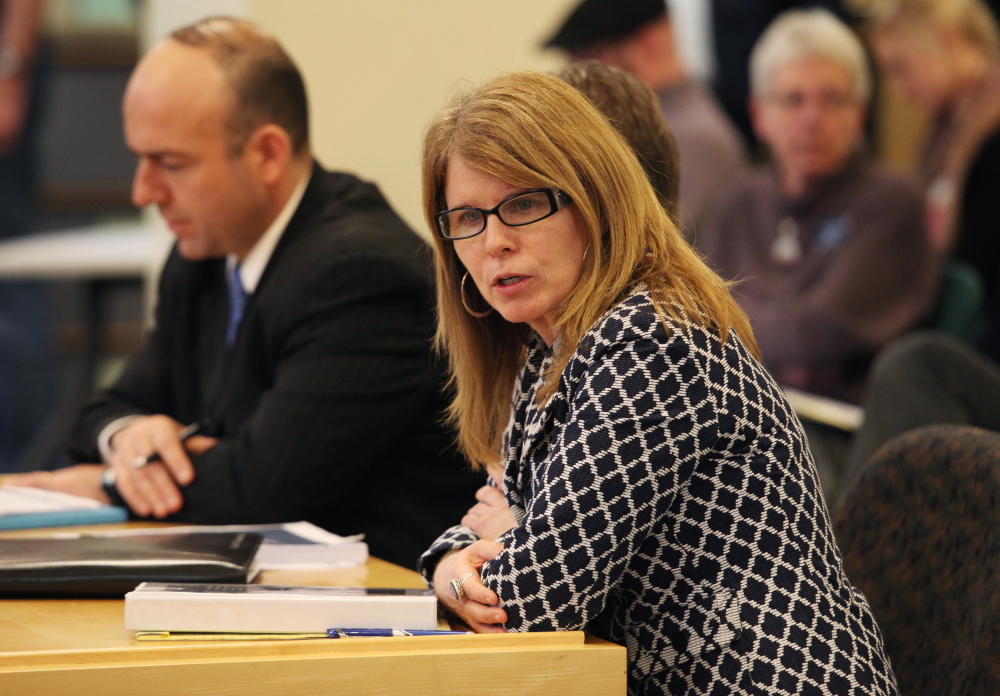AUGUSTA — The budget shortfall facing Maine’s Department of Health and Human Services is now expected to be about $30 million less than originally reported, Commissioner Mary Mayhew said Friday.
The department is bringing the projected shortfall down to about $78 million from $108 million, based on expenditures of the first six months of the new fiscal year, Mayhew told the Legislature’s Appropriations Committee
Lawmakers on the committee welcomed the lower figures as they prepare to craft a supplemental budget to fill the funding gap in the two-year spending plan.
“Anything like that is helpful,” said Republican Sen. Pat Flood of Winthrop. “Sometimes we’re just lucky, but I think in this case, they’ve been doing things at the department that are starting to show progress,” he said.
Mayhew said the program continues to struggle with increasing health care costs while a small number of individuals account for a significant amount of the spending, such as those with intellectual and developmental disabilities, the elderly and people with severe and persistent mental illness.
Republican Gov. Paul LePage’s administration has pointed to excessive spending on Medicaid and the shortfall as reasons why the state shouldn’t expand the program under the federal health care law.
In last week’s radio address, Le-Page said Maine has the third-highest spending on Medicaid in the nation.
“Expanding is not affordable,” he said.
But Maine’s Medicaid program growth is below the national average and Democrats say the administration is using the argument as an excuse to deny health care access to Maine residents.
“It gets used as a way to justify not expanding, cutting back on programs that end up hurting the elderly, people with disabilities and people with persistent and chronic illness,” said Rep. Peggy Rotundo, a Democrat from Lewiston and House chairwoman of the budget-writing committee.
The department projects an increase of less than 1 percent in overall spending in the Medicaid program this year over the last, Mayhew said Friday.
Nationally, Medicaid spending is projected to increase on average about 7 percent.
Senate Republican Leader Michael Thibodeau of Winterport said in a statement that it’s not unusual for administrations to have to revise shortfall numbers, especially in the Medicaid program where utilization is always changing.
But he said the DHHS budget must be structurally changed to avoid future shortfalls.
Send questions/comments to the editors.



Comments are no longer available on this story